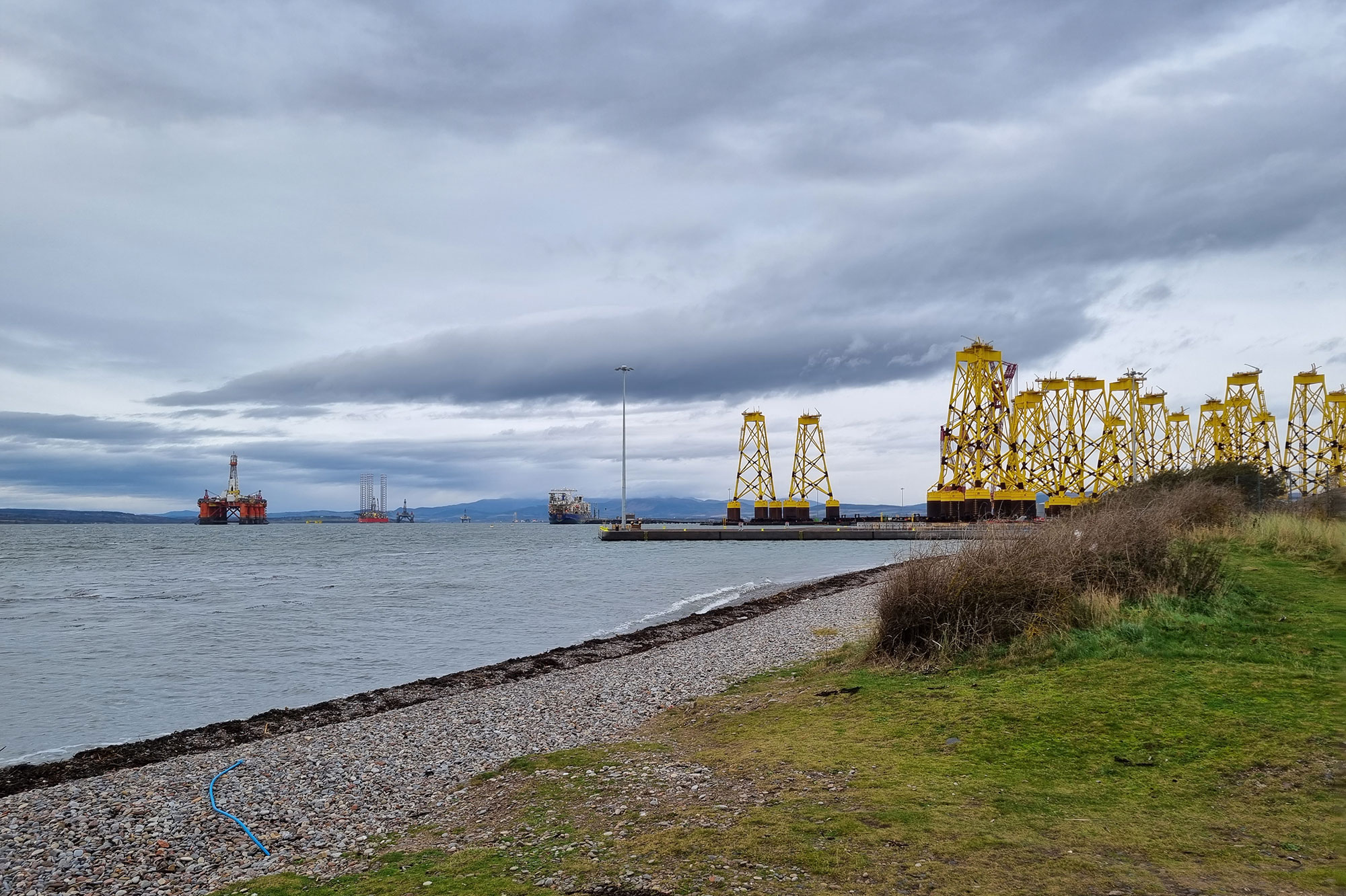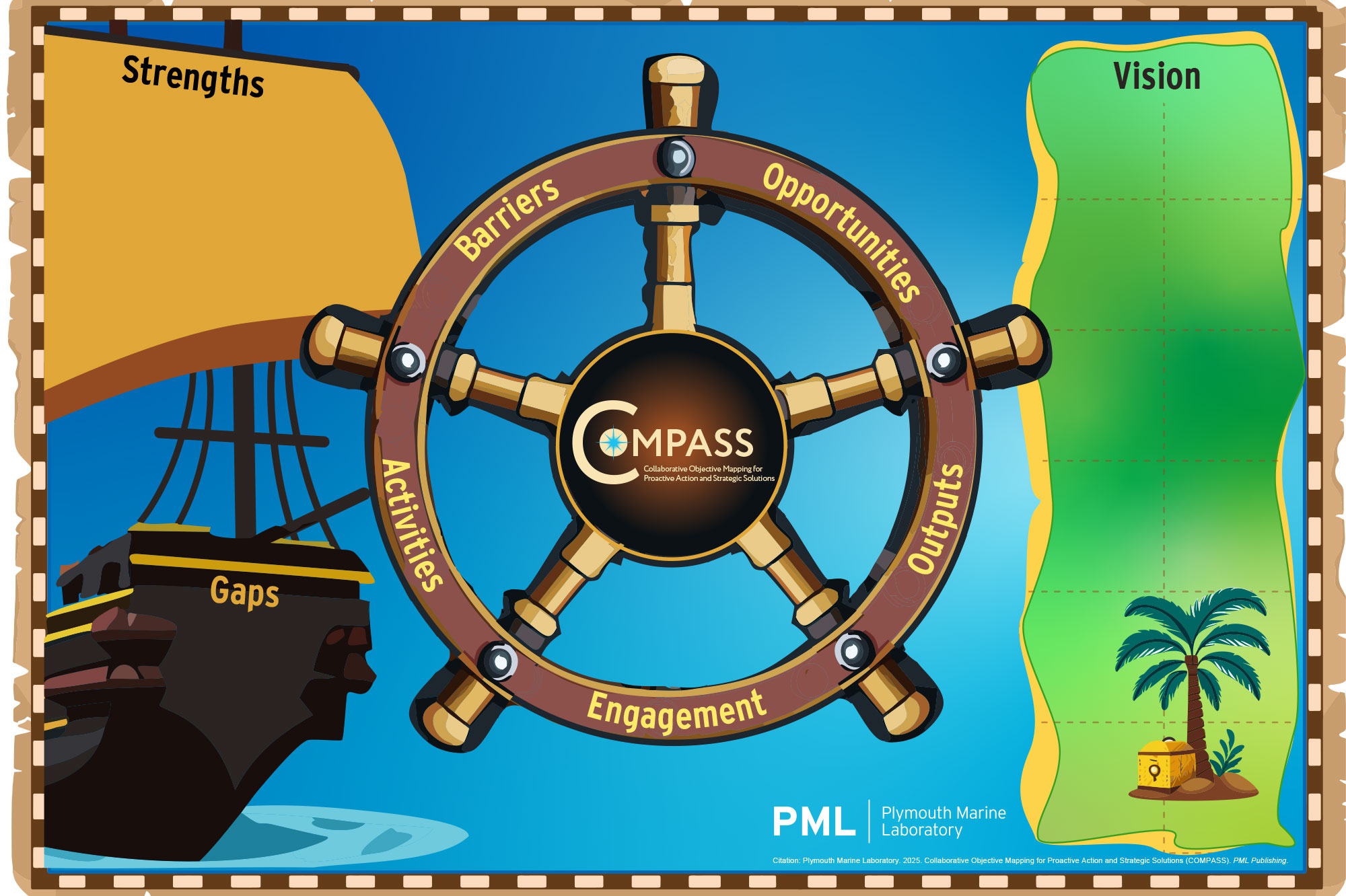Publications
We have an excellent reputation for producing high quality scientific publications from our research and also for having amongst the mostly highly cited papers in the environmental science community, both in the UK and internationally. This was borne out by two separate surveys conducted by Thomson Reuters and also by an analysis conducted by Scopus in 2013.
Recent journal publications
You will find a selection of recently published papers below. You can view more recent papers or search our database on our repository: Plymouth Marine Science Electronic Archive (PlyMSEA).
-
Moyse, E, Firth, LB, Smyth, TJ and Davies, TW (2025).
Artificial light at night alters seaweed reproductive phenology. Environmental Pollution, 385, 127155.
https://doi.org/10.1016/j.envpol.2025.127155 -
Britten, GL, Jönsson, BF, Kulk, G, Bouman, HA, Follows, MJ and Sathyendranath, S (2025).
Predicting photosynthesis–irradiance relationships from satellite remote‐sensing observations. Limnology and Oceanography Letters.
https://doi.org/10.1002/lol2.70062 -
Delobel, LA, Moffat, D, Tebbs, E and Baas, ACW (2025).
Segmenting and characterising ripple patterns on sand dunes using machine learning and 2D semi-variogram. Remote Sensing of Environment, 331, 115031.
https://doi.org/10.1016/j.rse.2025.115031 -
Meyer, B, Arata, JA, Atkinson, A, Bahlburg, D, Bernard, K, Cárdenas, CA, Grant, SM, Hill, SL, Hüppe, L, Ichii, T, Kawaguchi, S, Krafft, BA, Labrousse, S, Maschette, D, Piñones, A, Reiss, C, Siebenhüner, B, Sylvester, ZT and Ziegler, P (2025).
Adjusting the management of the Antarctic krill fishery to meet the challenges of the 21st century. Proceedings of the National Academy of Sciences, 122 (37).
https://doi.org/10.1073/pnas.2412624122 -
Sengupta, D, Girbal Brandão, F, Sathyendranath, S, Kulk, G, Conte, A, Ippoliti, C, Candeloro, L, Bucciarelli, M, Moffat, D, Wint, W, Maranesi, M, Scarano, R, Vitorino, J, Brandt, G and Morbagal Harish, T (2025).
Sensing human health from Space: An assessment of applications and big data platforms. Remote Sensing Applications: Society and Environment, 39, 101701.
https://doi.org/10.1016/j.rsase.2025.101701
PML Publishing
Our in-house publishing enables us to produce outputs that may not suit the traditional publishing process. We believe it's vital that our stakeholders can freely access as much of our science as possible. We aim to publish reports, books, and other scientific literature that is of interest to those passionate about marine science.

Sea the Value Marine Natural Capital Training Materials
Published 2025
Author(s): Collar, M., Contento, C., Dickie, I., Watson, S.C.L., Broszeit, S., Preston, J., Van der Schatte, A., Watson, G., Anbleyth-Evans, J., Burdon, D., Potts, T., Chan, C., Chung, P., Tinch, R., Erskine, A., Watts, A., Beaumont N

COMPASS Poster (Collaboration Objective Mapping for Proactive Action and Strategic Solutions
Published 2025
Author(s): Plymouth Marine Laboratory

COMPASS User Guide (Collaboration Objective Mapping for Proactive Action and Strategic Solutions
Published 2025
Author(s): Plymouth Marine Laboratory

Seascape carbon management beyond wetlands as eligible blue carbon activities
Published 2024
Author(s): Ana M Queirós, Mingxi Yang, Saskia Rühl, Cornelia Rindt, Melissa Ward and Steve Crooks

7th Conference of Advances in Marine Ecosystem Modelling Research – Conference Proceedings and Book of Abstracts
Published 2024
Author(s): Various authors

Research Impact Spotlight Event – Plymouth Sound a the Tamar Catchment – Event report and next steps
Published 2024
Author(s): Plymouth Marine Laboratory, Tamar Estuaries Consultative Forum and Plymouth Sound National Marine Park (eds)

Improving the performance of National Centre for Earth Observation (NCEO) code using GPUs
Published 2023
Author(s): Nicola Martin, Daniel Clewley, Steve Groom

The 8th International Symposium on Gas Transfer at Water Surfaces – Book of Abstracts
Published 2023
Author(s): Various Authors

AMT 30 Cruise Report
Published 2023
Author(s): Dr Andy Rees

Climate-smart spatial planning assessment in support of conservation and blue growth in Da Nang city’s marine environment
Published 2022
Author(s): Queiros, AM; Talbot, E; Kay, S; Sailley, SF; Vu Hoang Le, T; Thi Pham, C; Widdicombe, S

Characterisation of the inshore marine sectors of Da Nang, Vietnam
Published 2022
Author(s): Olivia R. Rendón, Andrew Edwards-Jones, Thi Kinh Kieu , Oceane Marcone, Stefanie Broszeit, Nicola BeaumontSea and Society Group, Plymouth Marine Laboratory, United Kingdom Da Nang University, Vietnam

MARLAN: Plymouth Marine Laboratory’s Marine Artificial Light at Night Research Facility
Published 2022
Author(s): Ana M Queirós, Liz Talbot, Chris Pascoe, Anthony Staff and Steve Widdicombe

Ecosystem service provision by marine habitats in Southeast Asia
Published 2022
Author(s): Stefanie Broszeit, Caroline Hattam, Olivia Langmead, Radisti A. Praptiwi, Lota Creencia, Amy Yee Hui Then, Voon-Ching Lim, Tran Duc Hau, Andrew Edwards-Jones, Melanie C. Austen

Assessment of the environmental, ecosystem, and human activities in coastal Vietnam and Cambodia gathered from satellite remote sensing
Published 2022
Author(s): Helen S. Findlay, Andrey Kurekin, Nick Selmes

Malaysia and Selangor Mangrove Policy Mapping and Analysis
Published 2022
Author(s): Edwards-Jones, A. Goh, HC. Lee, SL. Ruslan NFN. Lin, TL. Austen, MC. Then, AY

AMT 29 Cruise Report
Published 2020
Author(s): Giorgio Dall’Olmo

AMT28 Cruise Report
Published 2019
Author(s): Dr Glen Tarran

AMT27 Cruise Report
Published 2018
Author(s): Rees, AP

AMT26 Cruise Report
Published 2017
Author(s): Rees, AP

AMT25 Cruise Report
Published 2015
Author(s): Smyth, TJ

AMT24 Cruise Report
Published 2014
Author(s): Smyth, TJ

AMT23 Cruise Report
Published 2013
Author(s): Zubkov, MV

AMT22 Cruise Report
Published 2012
Author(s): Tarran, GA

AMT21 Cruise Report
Published 2011
Author(s): Tarran, GA

AMT19 Cruise Report
Published 2010
Author(s): Rees, AP

AMT20 Cruise Report
Published 2010
Author(s): Rees, AP

AMT18 Cruise Report
Published 2008
Author(s): Woodward EMS

AMT17 Cruise Report
Published 2006
Author(s): Holligan, PM

AMT16 Cruise Report
Published 2005
Author(s): Bale, AJ

AMT13 Cruise Report
Published 2004
Author(s): Robinson, C

AMT14 Cruise Report
Published 2004
Author(s): Holligan, PM

AMT15 Cruise Report
Published 2004
Author(s): Rees, AP
AMT12 Cruise Report
Published 2003
Author(s): Jickells, TD
AMT10 Cruise Report
Published 2000
Author(s): Gallienne CP
AMT11 Cruise Report
Published 2000
Author(s): Woodward EMS
AMT7 Cruise Report
Published 1999
Author(s): Donlon, C
AMT8 Cruise Report
Published 1999
Author(s): Rees, N
AMT9 Cruise Report
Published 1999
Author(s): Rees, N
AMT5 Cruise Report
Published 1998
Author(s): Aiken J, Cummings DG, Gibb SW, Rees NW, Woodd-Walker R, Woodwards EMS, Woolfenden J, Hooker SB, Berthon J-F, Dempsey CD, Suggett DJ, Wood P, Donlon C, Gonzalez-Benitez N, Huskin I, Quevedo M, Barciela-Fernandez R, de Vargas C, McKee C
AMT6 Cruise Report
Published 1998
Author(s): Aiken J, Woodward MS , Robinson C, Rees A , Serret P, Bowie A, Woodd-Walker R, Pilgrim D, Holligan P, Suggett D, Hooker S, Dempsey C, Brown J, Maritorena S, Barlow R, Lucas M, Tilstone G
AMT4 Cruise Report
Published 1997
Author(s): Bale, AJ

All AMT Publications (AMT 1 – AMT 30)
Published 1997 - 2023
Author(s): Multiple Authors
AMT1 Cruise Report
Published 1996
Author(s): Robins DB, Bale AJ, Moore GF, Rees NW, Hooker SB, Gallienne CP, Westbrook AG, Maranon E, Spooner WH, Laney SR
AMT2 Cruise Report
Published 1996
Author(s): Robins, DB
AMT3 Cruise Report
Published 1996
Author(s): Bale, AJ
